EGCG
How to submit an article:
- Registered users can submit any published journal article that has a unique DOI (Digital Object Identifier) name or link to Research Hub.
- For example, you can paste the full DOI link:
https://doi.org/10.1109/5.771073or just the DOI name:10.1109/5.771073into the field above and click submit. - The person who is first to submit a valid article to Research Hub will forever be credited for it, and every article submission earns you +6 Research Points.
EGCG (Epigallocatechin Gallate) is a polyphenolic compound found in green tea that has potent antioxidant and anti-inflammatory properties.
Also known as: Epigallocatechin Gallate
Related Topics
Published research studies are articles that present the findings of original research that has undergone a peer-review process and has been made publicly available in scholarly journals, books or other media.
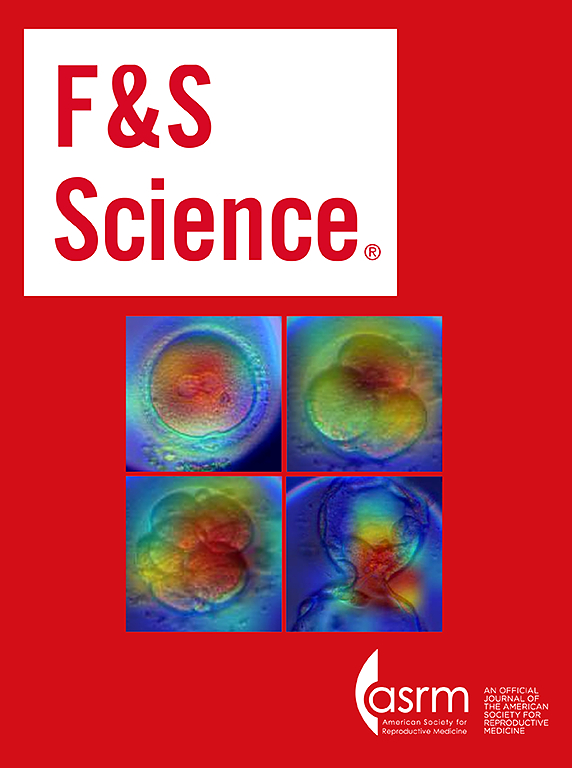
The combination of natural compounds Crila and epigallocatechin gallate (EGCG) showed enhanced antiproliferative effects on human uterine fibroid cells compared to single treatments.
2023 Sep F&S Science Bai T, Ali M, Somers B, Yang Q, McKinney S, Al-Hendy A
Network Pharmacology Uterine Fibroids EGCGCombining Crila with green tea extract (EGCG) has been found to synergistically hinder the growth of human uterine fibroid cells.
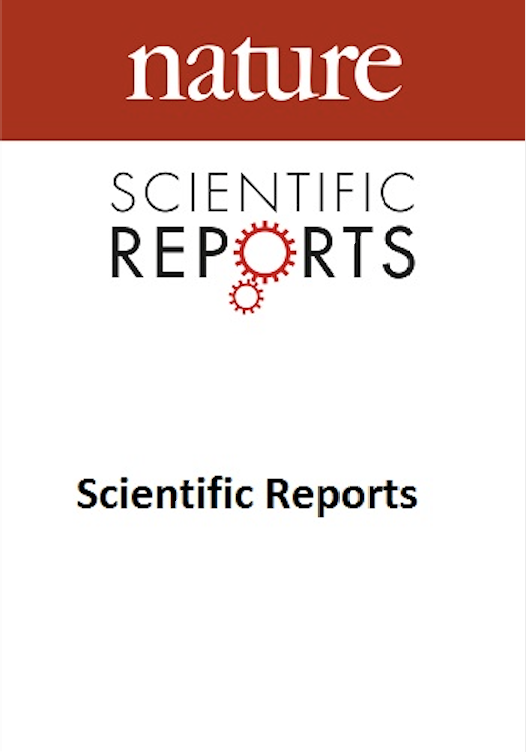
Targeting fibrotic signaling pathways by EGCG as a therapeutic strategy for uterine fibroids
2023 May 25 Scientific Reports Islam MS, Parish M, Brennan JT, Winer BL, Segars JH
We observed that EGCG displayed greater efficacy than ICG-001 (β-catenin), SP600125 (JNK) and MK-2206 (AKT) inhibitors, and its effects were equivalent to verteporfin (YAP) or SB525334 (Smad) for regulating expression of key fibrotic mediators. These data indicate that EGCG exhibits anti-fibrotic effects in fibroid cells. These results provide insight into mechanisms behind the observed clinical efficacy of EGCG against uterine fibroids.
Network Pharmacology EGCG Uterine Fibroids
Green Tea and Benign Gynecologic Disorders: A New Trick for An Old Beverage?
2023 Mar 16 Nutrients Hazimeh D, Massoud G, Parish M, Singh B, Segars J, Islam MS
Review Article Adenomyosis PCOS EGCG Endometriosis Green Tea Period PainGreen tea helps alleviate symptoms in multiple benign gynecological disorders, primarily due to a compound called Epigallocatechin-3-gallate.
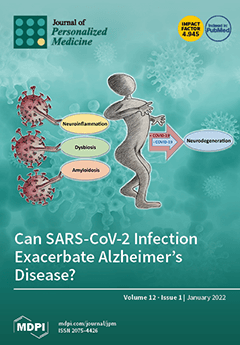
The Association of Four Natural Molecules—EGCG, Folic Acid, Vitamin B12, and HA—To Counteract HPV Cervical Lesions: A Case Report
2023 Mar 22 Journal of Personalized Medicine Grandi G, Botticelli L, Fraia PD, Babalini C, Masini M, Unfer V
Case Report Cervical Lesions Hyaluronic Acid Vitamin B12 Cervical Cancer HA Folic Acid Cervical Dysplasia Green Tea EGCG HPVThe combination of epigallocatechin gallate, vitamin B12, folic acid, and hyaluronic acid could effectively counter precancerous lesions of the uterine cervix caused by HPV infections.
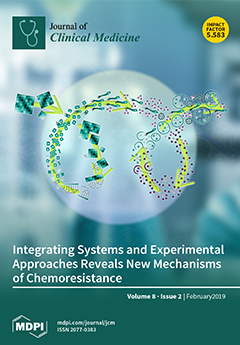
Evaluating the Efficacy of Pervistop®, a New Combination Based on EGCG, Folic Acid, Vitamin B12 and Hyaluronic Acid on Patients with Human Papilloma Virus (HPV) Persistent Infections and Cervical Lesions: A Pilot Study
2023 Mar 10 Journal of Clinical Medicine Aragona C, Bezerra Espinola MS, Bilotta G, Porcaro G, Calcagno M
Randomised Controlled Trial Cervical Dysplasia Vitamin B12 Green Tea HPV Hyaluronic Acid Folic Acid EGCGA combination of epigallocatechin gallate, folic acid, vitamin B12, and hyaluronic acid may effectively clear HPV infections and cervical lesions in women.
Research insights are moderated by the Research Hub team and offer an at-a-glance overview of interesting research findings.

2023 F&S Science
Combining Crila with green tea extract (EGCG) has been found to synergistically hinder the growth of human uterine fibroid cells.
Network Pharmacology Uterine Fibroids
The combination of natural compounds Crila and epigallocatechin gallate (EGCG) showed enhanced antiproliferative effects on human uterine fibroid cells compared to single treatments.
Bai T, Ali M, Somers B, Yang Q, McKinney S, Al-Hendy A

2023 Journal of Personalized Medicine
The combination of epigallocatechin gallate, vitamin B12, folic acid, and hyaluronic acid could effectively counter precancerous lesions of the uterine cervix caused by HPV infections.
Case Report Cervical Cancer Cervical Dysplasia Cervical Lesions Folic Acid Green Tea
The Association of Four Natural Molecules—EGCG, Folic Acid, Vitamin B12, and HA—To Counteract HPV Cervical Lesions: A Case Report
Grandi G, Botticelli L, Fraia PD, Babalini C, Masini M, Unfer V

2023 Nutrients
Green tea helps alleviate symptoms in multiple benign gynecological disorders, primarily due to a compound called Epigallocatechin-3-gallate.
Review Article Adenomyosis Endometriosis Green Tea PCOS Period Pain
Green Tea and Benign Gynecologic Disorders: A New Trick for An Old Beverage?
Hazimeh D, Massoud G, Parish M, Singh B, Segars J, Islam MS

2023 Journal of Clinical Medicine
A combination of epigallocatechin gallate, folic acid, vitamin B12, and hyaluronic acid may effectively clear HPV infections and cervical lesions in women.
Randomised Controlled Trial Cervical Dysplasia Folic Acid Green Tea HPV Hyaluronic Acid
Evaluating the Efficacy of Pervistop®, a New Combination Based on EGCG, Folic Acid, Vitamin B12 and Hyaluronic Acid on Patients with Human Papilloma Virus (HPV) Persistent Infections and Cervical Lesions: A Pilot Study
Aragona C, Bezerra Espinola MS, Bilotta G, Porcaro G, Calcagno M

2023 Nutrients
Epigallocatechin gallate (EGCG), a green tea component, showed potential in treating uterine fibroids and associated infertility without causing liver toxicity or folate deficiency.
Cohort Study Green Tea Uterine Fibroids
Assessing the Hepatic Safety of Epigallocatechin Gallate (EGCG) in Reproductive-Aged Women
Siblini H, Al-Hendy A, Segars J, González F, Taylor HS, Singh B, et al.
Review Articles
Review articles summarise and critically evaluate the current state of research on a specific topic or field by synthesising multiple primary research studies.

Green Tea and Benign Gynecologic Disorders: A New Trick for An Old Beverage?
2023 Mar 16 Nutrients Hazimeh D, Massoud G, Parish M, Singh B, Segars J, Islam MS
Review Article Adenomyosis PCOS EGCG Endometriosis Green Tea Period PainGreen tea helps alleviate symptoms in multiple benign gynecological disorders, primarily due to a compound called Epigallocatechin-3-gallate.
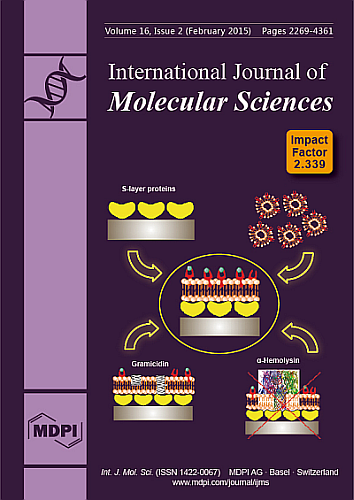
Green Tea Catechins: Nature’s Way of Preventing and Treating Cancer
2022 Sep 14 International Journal of Molecular Sciences Farhan M
Review Article EGCG Cancer Green Tea AnticancerCompounds found in green tea, especially EGCG, show significant anti-cancer activity and hold promise as potential anticancer drugs or adjuvants to standard chemotherapy.
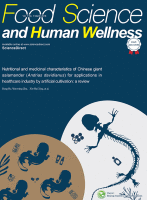
Green tea, epigallocatechin gallate and the prevention of Alzheimer’s disease: Clinical evidence
2022 Jul Food Science and Human Wellness Lange KW, Lange KM, Nakamura Y
Systematic Review EGCG Alzheimer's DiseaseBioactive components in green tea have demonstrated potential neuroprotective effects and might play a role in preventing Alzheimer’s disease.

Therapeutic effects of green tea on endometriosis
2021 Oct 07 Critical Reviews in Food Science and Nutrition Chen X, Man GCW, Hung SW, Zhang T, Fung LWY, Cheung CW, et al.
Review Article EGCG Anti-Inflammatory Antioxidant Endometriosis Green TeaGreen tea and its component EGCG, demonstrate potential as a treatment for endometriosis by inhibiting growth, invasion, adhesion and angiogenesis.

Beneficial Effects of Green Tea Catechins on Female Reproductive Disorders: A Review
2021 May 03 Molecules Kamal DAM, Salamt N, Zaid SSM, Mokhtar MH
Review Article PCOS Period Pain Female Reproductive Disorders Endometriosis Green TeaGreen tea and its chief bioactive component have the potential to improve certain female reproductive disorders such as endometriosis, polycystic ovary syndrome, and dysmenorrhea.
Clinical Trials
Clinical trials are research studies that involve people and are conducted to evaluate the safety and efficacy of new treatments or interventions, such as drugs, medical devices, or behavioural therapies.

Evaluating the Efficacy of Pervistop®, a New Combination Based on EGCG, Folic Acid, Vitamin B12 and Hyaluronic Acid on Patients with Human Papilloma Virus (HPV) Persistent Infections and Cervical Lesions: A Pilot Study
2023 Mar 10 Journal of Clinical Medicine Aragona C, Bezerra Espinola MS, Bilotta G, Porcaro G, Calcagno M
Randomised Controlled Trial Cervical Dysplasia Vitamin B12 Green Tea HPV Hyaluronic Acid Folic Acid EGCGA combination of epigallocatechin gallate, folic acid, vitamin B12, and hyaluronic acid may effectively clear HPV infections and cervical lesions in women.
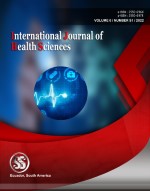
The use of green tea in the treatment of symptomatic uterine fibroids
2022 Apr 02 International Journal of Health Sciences Badawy A, Shady NW, Maklad SMA, Ait-Allah AS
Randomised Controlled Trial Uterine Fibroids Green Tea EGCGGreen tea extract, specifically epigallocatechin gallate, can inhibit tumor growth and enhance the quality of life in women suffering from uterine fibroids.

The combined effect of green tea and α-glucosyl hesperidin in preventing obesity: a randomized placebo-controlled clinical trial
2021 Sep 24 Scientific Reports Yoshitomi R, Yamamoto M, Kumazoe M, Fujimura Y, Yonekura M, Shimamoto Y, et al.
Clinical Study Randomised Controlled Trial EGCG Obesity Green TeaConsumption of green tea enriched with a citrus polyphenol, α-glucosyl hesperidin, can prevent weight gain and reduce body mass index, especially in individuals under 50 years.

Efficacy of green tea and its extract, epigallocatechin-3-gallate, in the reduction of cariogenic microbiota in children: a randomized clinical trial
2020 Jun Archives of Oral Biology Vilela MM, Salvador SL, Teixeira IGL, Del Arco MCG, De Rossi A
Rinsing with EGCG solution significantly reduced levels of mutans streptococci and lactobacilli in the oral cavity of children; the microbial reduction percentage for mutans streptococci was 79.9% for EGCG, 68.3% for green tea, 50.6% for distilled water, and 95.5% for chlorhexidine (CHX); for lactobacilli, the percentage reduction was 72.09% for EGCG, 59.17% for green tea, 41.96% for distilled water, and 86.02% for CHX; EGCG had better antimicrobial activity than green tea, and both could be effective alternatives to chlorhexidine-based mouthwashes.
Randomised Controlled Trial Antimicrobial Green Tea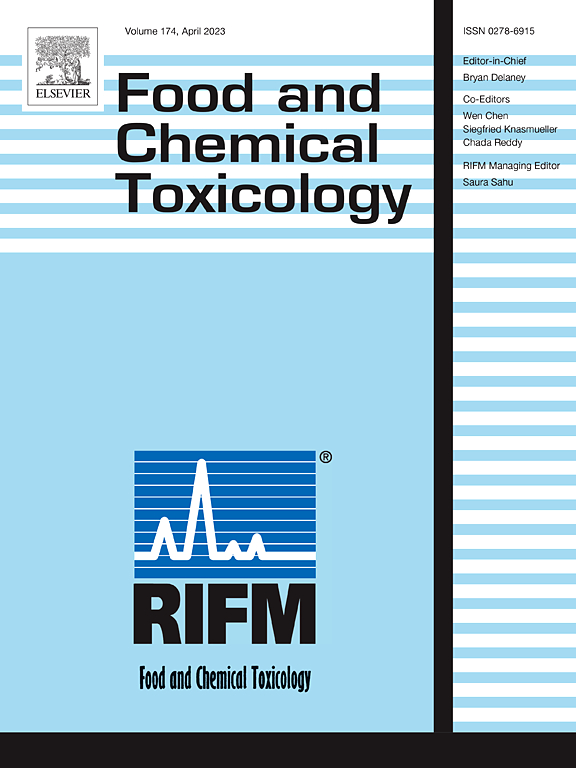
The safety of green tea extract supplementation in postmenopausal women at risk for breast cancer: results of the Minnesota Green Tea Trial
2015 Sep Food and Chemical Toxicology Dostal AM, Samavat H, Bedell S, Torkelson C, Wang R, Swenson K, et al.
Randomised Controlled Trial EGCGGreen tea extract consumption can potentially cause mild adverse reactions, notably nausea, skin conditions, and increased alanine aminotransferase levels.
Study Protocols
Published study protocols are detailed plans that outline the objectives, methodology, statistical analyses, and organisation of a research study that have been made publicly available for others to review and use as a reference.
Presentation Slides

Network Pharmacology
Combining Crila with green tea extract (EGCG) has been found to synergistically hinder the growth of human uterine fibroid cells.
Bai T, Ali M, Somers B, Yang Q, McKinney S, Al-Hendy A

Case Report
The combination of epigallocatechin gallate, vitamin B12, folic acid, and hyaluronic acid could effectively counter precancerous lesions of the uterine cervix caused by HPV infections.
Grandi G, Botticelli L, Fraia PD, Babalini C, Masini M, Unfer V

Review Article
Green tea helps alleviate symptoms in multiple benign gynecological disorders, primarily due to a compound called Epigallocatechin-3-gallate.
Hazimeh D, Massoud G, Parish M, Singh B, Segars J, Islam MS

Randomised Controlled Trial
A combination of epigallocatechin gallate, folic acid, vitamin B12, and hyaluronic acid may effectively clear HPV infections and cervical lesions in women.
Aragona C, Bezerra Espinola MS, Bilotta G, Porcaro G, Calcagno M

Cohort Study
Epigallocatechin gallate (EGCG), a green tea component, showed potential in treating uterine fibroids and associated infertility without causing liver toxicity or folate deficiency.
Siblini H, Al-Hendy A, Segars J, González F, Taylor HS, Singh B, Flaminia A, Flores VA, Christman GM, Huang H, Johnson JJ, Zhang H

Review Article
Compounds found in green tea, especially EGCG, show significant anti-cancer activity and hold promise as potential anticancer drugs or adjuvants to standard chemotherapy.
Farhan M

Systematic Review
Bioactive components in green tea have demonstrated potential neuroprotective effects and might play a role in preventing Alzheimer’s disease.
Lange KW, Lange KM, Nakamura Y

Randomised Controlled Trial
Green tea extract, specifically epigallocatechin gallate, can inhibit tumor growth and enhance the quality of life in women suffering from uterine fibroids.
Badawy A, Shady NW, Maklad SMA, Ait-Allah AS
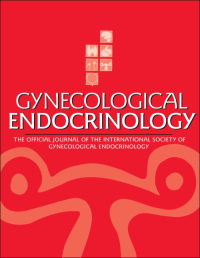
Clinical Study
Simultaneous administration of vitamin D and Epigallocatechin gallate significantly reduces the size of uterine fibroids in premenopausal women, and decreases menstrual flow duration.
Grandi G, Del Savio MC, Melotti C, Feliciello L, Facchinetti F

Review Article
Green tea and its component EGCG, demonstrate potential as a treatment for endometriosis by inhibiting growth, invasion, adhesion and angiogenesis.
Chen X, Man GCW, Hung SW, Zhang T, Fung LWY, Cheung CW, Chung JPW, Li TC, Wang CC

Clinical Study
Consumption of green tea enriched with a citrus polyphenol, α-glucosyl hesperidin, can prevent weight gain and reduce body mass index, especially in individuals under 50 years.
Yoshitomi R, Yamamoto M, Kumazoe M, Fujimura Y, Yonekura M, Shimamoto Y, Nakasone A, Kondo S, Hattori H, Haseda A, Nishihira J, Tachibana H

Review Article
Green tea and its chief bioactive component have the potential to improve certain female reproductive disorders such as endometriosis, polycystic ovary syndrome, and dysmenorrhea.
Kamal DAM, Salamt N, Zaid SSM, Mokhtar MH
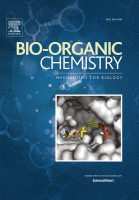
Experimental Study
Green tea polyphenolic compounds, (-)-epigallocatechin (EGC) and (-)-epicatechin-3-gallate (ECG), can diminish harmful Alzheimer's disease linked Aβ aggregates and ameliorate symptoms.
Chen T, Yang Y, Zhu S, Lu Y, Zhu L, Wang Y, Wang X

Experimental Study
The major components of green tea and coffee, EGCG and CGA respectively, may have anti-cancer effects, though these effects seem to vary for different types of cancer.
Hayakawa S, Ohishi T, Miyoshi N, Oishi Y, Nakamura Y, Isemura M
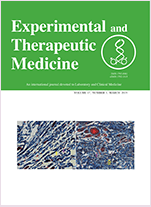
The polyphenol epigallocatechin-3-gallate (EGCG) inhibits the growth of cervical carcinoma cell lines potentially by altering the expression of micro-RNAs, indicating its potential as an anti-cervical cancer drug.
Zhu Y, Huang Y, Liu M, Yan Q, Zhao W, Yang P, Gao Q, Wei J, Zhao W, Ma L

Review Article
(-)-Epigallocatechingallate (EGCG), a natural product, has potent anti-proliferation, anti-metastasis, and pro-apoptosis effects on cervical cancer cells, enhancing the effects of conventional drugs.
Wang YQ, Lu JL, Liang YR, Li QS
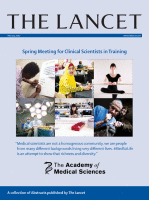
The major bioactive polyphenol in green tea, EGCG, could potentially reverse the abnormal changes induced by oncogenic HPV strains.
Yap J, Luesley D, Woodman C, Dawson C

Randomised Controlled Trial
Green tea extract consumption can potentially cause mild adverse reactions, notably nausea, skin conditions, and increased alanine aminotransferase levels.
Dostal AM, Samavat H, Bedell S, Torkelson C, Wang R, Swenson K, Le C, Wu AH, Ursin G, Yuan JM, Kurzer MS
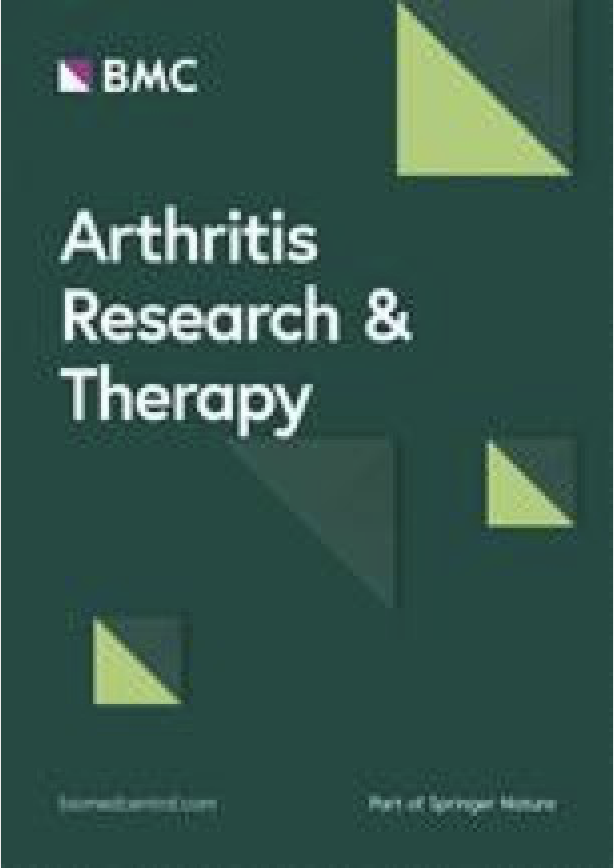
Experimental Study
Epigallocatechin 3-gallate (EGCG), found in green tea, can significantly slow down osteoarthritis progression and reduce associated pain in a post-traumatic osteoarthritis mouse model.
Leong DJ, Choudhury M, Hanstein R, Hirsh DM, Kim SJ, Majeska RJ, Schaffler MB, Hardin JA, Spray DC, Goldring MB, Cobelli NJ, Sun HB
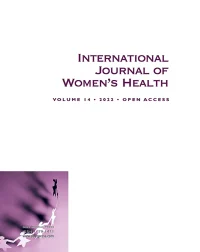
Randomised Controlled Trial
Green tea extract has shown promising results in reducing uterine fibroid volume, fibroid-related symptoms, and improving quality of life in women with symptomatic uterine fibroids.
Roshdy E, Rajaratnam V, Maitra S, Sabry M, Ait Allah AS, Al-Hendy A
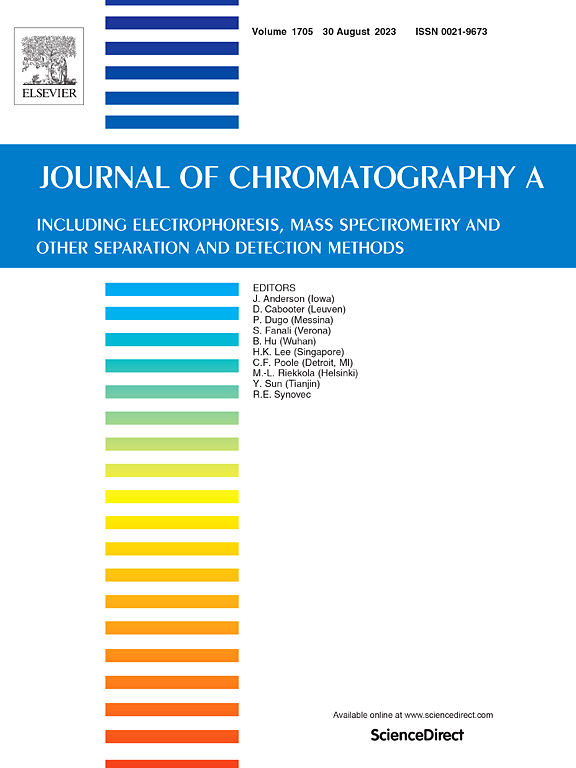
Experimental Study
Matcha tea holds nearly 137 times the concentration of epigallocatechin gallate, an important catechin, compared to common green teas.
Weiss DJ, Anderton CR
Executive Summary
Write an executive summary in the form of a blog article on the topic of "Research into Chinese medicine treatment for EGCG" summarising the research below and using language that can be easily understood by patients and avoiding medical jargon using a professional and caring tone of voice.
Write an executive summary in the form of a blog article on the topic of "Researched Chinese medicine treatments for EGCG" summarising the research below in an objective and easy to understand way, and using language that can be easily understood by patients. Group the article into Chinese medicine treatments first, followed by nutrition and other treatments. Avoid using medical jargon and use a professional and caring tone of voice.
Write me a concise but easy to understand executive summary on the topic of "Chinese medicine treatments for EGCG" based on the following research that I will give you. Your summary should be 2 paragraphs long in Australian English spelling and include references to the studies.
A Network Pharmacology published in 2023 in the journal F&S Science found that Combining Crila with green tea extract (EGCG) has been found to synergistically hinder the growth of human uterine fibroid cells. In the methodological process, human uterine leiomyoma (HuLM) cells were treated with varying concentrations of Crila, either alone or combined with epigallocatechin gallate (EGCG), employing various tests. Prominently, assays were performed to examine cell proliferation, with additional analyses conducted to measure protein and gene expressions of proliferation markers. The interaction of Crila and EGCG resulted in a notable reduction in HuLM cell viability, showing an increased inhibitory effect over singular treatments. This decrease in cell proliferation is attributed to a synergistic efficacy derived from using Crila and EGCG in combination. It was notably characterised by the reduced presence of the proliferation marker, proliferating cell nuclear antigen, both at the messenger RNA and protein levels. It was observed that the process does not induce cell apoptosis, implying that the cell viability reduction is primarily due to decreased cell proliferation.
A Case Report published in 2023 in the journal Journal of Personalized Medicine found that The combination of epigallocatechin gallate, vitamin B12, folic acid, and hyaluronic acid could effectively counter precancerous lesions of the uterine cervix caused by HPV infections. The methodology used in this research centred around treating a 39-year-old patient who had a history of HPV, cervix lesions, and multiple failed surgical attempts to treat the condition. The treatment plan applied was unique, utilizing a blend of epigallocatechin gallate, vitamin B12, folic acid, and hyaluronic acid, administered over an eight week period. The results showed promising effects, with the patient's histological and cytological analyses revealing only a chronic cervicitis instead of any malignant lesions or cellular dysplasia. Therefore, the necessity for invasive total hysterectomy was minimized, demonstrating the potential for the selected treatment plan to manage precancerous lesions of the uterine cervix.
A Review Article published in 2023 in the journal Nutrients found that Green tea helps alleviate symptoms in multiple benign gynecological disorders, primarily due to a compound called Epigallocatechin-3-gallate. The paper reviews the role of the compound Epigallocatechin-3-gallate found in green tea, and its effects on various benign gynecological conditions. The compound is noted for its antioxidant and prooxidant qualities, allowing it to interact with multiple cellular pathways that are crucial for disease pathogenesis. The studied conditions include uterine fibroids, endometriosis, dysmenorrhea, adenomyosis, menopause, and polycystic ovary syndrome. The research accounts for the specific mechanisms through which the compound might affect each condition, such as anti-fibrotic, anti-angiogenic, and pro-apoptotic mechanisms. The results suggest that green tea consumption can lead to improved symptom management in these disorders. It was found to lessen the intensity of symptoms associated with uterine fibroids and endometriosis, by invoking anti-fibrotic, anti-angiogenic, and pro-apoptotic mechanisms. It also helped manage pain linked with dysmenorrhea and adenomyosis through reducing uterine contractility and widely felt pain. Additionally, it showed efficacy in weight and osteoporosis control during menopause, and showed potential benefits in managing polycystic ovary syndrome. However, claims regarding its influence on fertility were deemed controversial.
A Randomised Controlled Trial published in 2023 in the journal Journal of Clinical Medicine found that A combination of epigallocatechin gallate, folic acid, vitamin B12, and hyaluronic acid may effectively clear HPV infections and cervical lesions in women. Forty women with persistent HPV infections and cervical lesions were enrolled in this study and were then divided into two groups. Women in the treatment group were given a 12-week treatment comprising of 200mg epigallocatechin gallate, 400µg folic acid, 1mg vitamin B12, and 50mg hyaluronic acid. In contrast, the control group received no treatment. A significant difference was noted between the two groups post-treatment. In the control group, the majority of women still had a Low-Grade Squamous Intraepithelial Lesion (LSIL) at the close of the study, with varying changes in viral DNA content. However, in the case of the treated group, most women had achieved full viral clearance, showing no signs of lesions post-treatment, thus highlighting the potential effectiveness of the treatment combination.
A Cohort Study published in 2023 in the journal Nutrients found that Epigallocatechin gallate (EGCG), a green tea component, showed potential in treating uterine fibroids and associated infertility without causing liver toxicity or folate deficiency. The study involved the pre-testing of a green tea substance known as Epigallocatechin gallate (EGCG) on a cohort of premenopausal women, aged 18 to 40, with and without uterine fibroids, in order to evaluate its safety. The subjects were randomized into three groups, each receiving different treatments. One group took just a daily dose of 800 mg of EGCG, one group combined this EGCG dose with 100 mg of Clomiphene citrate for five days, and the third group combined it with 5 mg of Letrozole for the same period. The results showed that none of the subjects displayed signs of drug-induced liver injury, and all had normal serum folate levels. Hence, the findings suggest that the daily intake of 800mg of EGCG, whether consumed alone or in combination with Clomiphene citrate or Letrozole for five days, is well-tolerated and not related to any liver toxicity or folate deficiency in women of reproductive age.
A Review Article published in 2022 in the journal International Journal of Molecular Sciences found that Compounds found in green tea, especially EGCG, show significant anti-cancer activity and hold promise as potential anticancer drugs or adjuvants to standard chemotherapy. The study used a combination of epidemiological and laboratory studies to examine the effects of catechins in green tea on combating cancer. The researchers focused their attention on the four main catechin derivatives found in green tea: epicatechin, epigallocatechin, epicatechin gallate, and epigallocatechin gallate—the latter found to be most potent. Attention was given to the quantity of hydroxyl groups and the presence of certain structural groups in these compounds, and how these factors affected antioxidant activity. The study centered around the effects of catechins on tumor survival, proliferation, invasion, angiogenesis, and metastasis. By doing this, the researchers could observe the influence of the identified compounds on the various processes that lead to the development and spread of cancer. The main point of observation was the capacity of catechins to neutralize reactive oxygen species, a key facet in their anti-cancer activity.
A Systematic Review published in 2022 in the journal Food Science and Human Wellness found that Bioactive components in green tea have demonstrated potential neuroprotective effects and might play a role in preventing Alzheimer’s disease. In this study, the researchers focused on the potential preventative effects of bioactive compounds, specifically (-)-epigallocatechin-3-gallate, present in tea, on Alzheimer's disease (AD). This interest was based on recognition of the importance of lifestyle-related factors, including diet, in the primary prevention of AD. They compiled and analyzed the findings from various preclinical studies which pointed towards the neuroprotective qualities of these compounds. The results reveal an association between the consumption of green tea and a reduction in the risk of age-related cognitive decline and AD. However, these results do not establish a causal relationship. That is, while people who drink green tea appear to have lower rates of AD, the study cannot confirm that green tea consumption is the reason for this reduced prevalence. The researchers also emphasized that while the preventative effects of green tea were deduced from preclinical (animal) studies, human-based clinical trials yielded unsatisfactory evidence regarding tea's preventive or therapeutic effect on AD.
A Randomised Controlled Trial published in 2022 in the journal International Journal of Health Sciences found that Green tea extract, specifically epigallocatechin gallate, can inhibit tumor growth and enhance the quality of life in women suffering from uterine fibroids. A total of 75 reproductive-age women with symptomatic uterine fibroids were included in a prospective, randomized control trial. The selection of participants for either group, those receiving 900 mg of green tea extract or those receiving symptomatic treatment, was done via a random, blind method using sealed envelopes. This trial took place over a span of 4 months and the overall study lasted around 3 years. The results of the study showcased the potency of green tea extract, particularly EGCG, with special regard to its anticancer properties. These manifested as anti-inflammatory, antiproliferative, and antioxidant effects. It was found that the administration of EGCG managed to influence tumor growth pathways, indicating its efficacy in dealing with uterine fibroids. Moreover, another significant progression was observed in the quality of life for the women partaking in this trial. It was confirmed that the use of EGCG could bring about an overall improvement in the living conditions of these women, contributing towards a better, healthier life amidst the struggle with their condition.
A Clinical Study published in 2021 in the journal Gynecological Endocrinology found that Simultaneous administration of vitamin D and Epigallocatechin gallate significantly reduces the size of uterine fibroids in premenopausal women, and decreases menstrual flow duration. In this study, 16 premenopausal women with uterine fibroids of varying sizes aged over 40 years old were given doses of Epigallocatechin gallate, Vitamin B6 and Vitamin D daily for 90 days. The women were selected based on specific criteria including their fibroid size and lack of other causes for abnormal uterine bleeding. Each woman kept a detailed daily diary recording details about their bleeding and pelvic pain. The analysis of the data revealed that there was a noteworthy decrease in both the average size of fibroids for each woman and the size of individual fibroids. This effect was especially pronounced in women with predominantly intramural fibroids in comparison to subserosal fibroids. While menstrual cycle duration and intensity did not change, the length of menstrual flow was decreased. Uterine and ovarian volume as well as endometrial thickness did not exhibit any significant changes. The treatment was generally highly satisfactory to the participants, with no adverse effects reported.
A Review Article published in 2021 in the journal Critical Reviews in Food Science and Nutrition found that Green tea and its component EGCG, demonstrate potential as a treatment for endometriosis by inhibiting growth, invasion, adhesion and angiogenesis. The main research methodology of this work is a narrative review. The paper comprehensively collects and reviews various preclinical studies that propose the use of green tea as a potential treatment for endometriosis. These studies explore the diverse biological properties and activities of green tea and its major bioactive component, (-)-epigallocatechin gallate, including anti-angiogenic, anti-proliferation, anti-metastasis, and apoptosis induction functions. Different potential mechanisms used by green tea to inhibit the growth of endometriosis are considered, such as its effects on inflammation, oxidative stress, invasion, adhesion, and apoptosis. The discussion of the reviewed data highlights the potential therapeutic effects of green tea acting on different molecular and cellular mechanisms in endometriosis. The researchers keenly discussed how green tea exhibited an inhibitory effect on the disease through multiple avenues, including reducing inflammation and oxidative stress, preventing tumor invasion and adhesion, promoting apoptosis (cell death), and limiting angiogenesis (the development of new blood vessels) - all these factors contribute to the growth and progression of endometriosis. The discussion elaborates on the significant roles and wider implications of these processes in understanding and potentially treating endometriosis.
A Clinical Study published in 2021 in the journal Scientific Reports found that Consumption of green tea enriched with a citrus polyphenol, α-glucosyl hesperidin, can prevent weight gain and reduce body mass index, especially in individuals under 50 years. The research involved a randomized, placebo-controlled, double-blinded, and parallel-group-designed clinical trial. Sixty healthy Japanese men and women aged between 30 and 75 were included in the study. They were instructed to consume a blend of green tea and α-glucosyl hesperidin (GT-gH). Each dosage contained 178 mg α-glucosyl hesperidin and 146 mg of an active ingredient of green tea, called EGCG. This protocol was followed for 12 weeks. Participants underwent physical, hematological, blood biochemical, and urine examinations to ensure safety. Discussion of findings showed that the GT-gH mixture played a significant role in weight management. By the end of 12 weeks, participants who consumed the GT-gH mix showed prevention in weight gain and a reduction in body mass index when compared to the control group. The anti-obesity effect was particularly observable in individuals aged below 50. These participants experienced lower levels of triglyceride, body fat percentage, and visceral fat levels, alongside a decrease in body weight, BMI, and blood LDL/HDL ratios.
A Review Article published in 2021 in the journal Molecules found that Green tea and its chief bioactive component have the potential to improve certain female reproductive disorders such as endometriosis, polycystic ovary syndrome, and dysmenorrhea. The study reviews the beneficial effects of green tea and its major bioactive component on female reproductive disorders, focusing on endometriosis, polycystic ovary syndrome (PCOS), and dysmenorrhea. The research highlights the role of catechins, phenolic compounds found in tea, which have been known for their health benefits due to their high antioxidative properties. The green tea or its derivative works on endometriosis through anti-angiogenic, anti-fibrotic, anti-proliferative, and proapoptotic mechanisms. In the discussion of results, it was found that green tea not only enhances ovulation and reduces cyst formation in PCOS, but it also ameliorates generalised hyperalgesia, reduces plasma corticosterone levels, and mitigates uterine contractility in dysmenorrhea. Despite the promising findings, the study acknowledges the need for more comprehensive clinical trials to fully translate these findings into clinical practice.
A Experimental Study published in 2020 in the journal Bioorganic Chemistry found that Green tea polyphenolic compounds, (-)-epigallocatechin (EGC) and (-)-epicatechin-3-gallate (ECG), can diminish harmful Alzheimer's disease linked Aβ aggregates and ameliorate symptoms. Green tea compounds EGC and ECG were tested for their effects on Cu/Zn-induced or self-assembled Aβ aggregation involved in Alzheimer's disease. To do so, a combination of thioflavine T fluorescent spectrometry, inductively coupled plasma mass spectrometry, UV-Vis spectroscopy, transmission electron microscopy, silver staining, immunohistochemistry, and immunofluorescence assays were utilized. Findings indicate that these compounds bind mildly to Cu and Zn and reduce their caused or self-assembled Aβ aggregates. Moreover, these compounds were shown to manage neurotoxicity in mouse neuroblastoma Neuro-2a cells by decreasing the production of reactive oxygen species (ROS). From the findings, the EGC and ECG in green tea showed potential in reducing the toxicity of Aβ oligomers and fibrils which are heavily linked to Alzheimer's disease. Notably, ECG has the ability to traverse the blood-brain barrier and reduce Aβ plaques within the mouse brain, showcasing its potential for neuron protection. This study highlights the potential of green tea - specifically, its polyphenolic compounds - in the prevention or reduction of Alzheimer's disease symptoms.
A Experimental Study published in 2020 in the journal Molecules found that The major components of green tea and coffee, EGCG and CGA respectively, may have anti-cancer effects, though these effects seem to vary for different types of cancer. Studies were conducted across cell-based and animal trials to explore the health benefits, particularly in anticancer effects, of epigallocatechin gallate (known as EGCG) and chlorogenic acid (CGA), the predominant elements in green tea and coffee, respectively. It was observed that the results were inconsistent due to possible confounding factors. A conceivable mechanism suggested, a part of those shared between EGCG and CGA, was related to the alterations in reactive oxygen species. However, the variance in the anti-cancer effects may be attributed to the different target molecules of EGCG and CGA, signifying the site-specific differences of anti-cancer effects observed in human studies.
A published in 2018 in the journal Experimental and Therapeutic Medicine found that The polyphenol epigallocatechin-3-gallate (EGCG) inhibits the growth of cervical carcinoma cell lines potentially by altering the expression of micro-RNAs, indicating its potential as an anti-cervical cancer drug. In the methodology, an MTT assay was used to measure cell proliferation and examine the inhibitory effects of EGCG, a polyphenol, on the growth of cervical carcinoma for HeLa cells subjected to a range of EGCG concentrations. The study also assessed the associated regulation of various microRNA expression involving HeLa, SiHa, CaSki and C33A cell lines, using quantitative polymerase chain reaction (PCR) analyses. The results revealed that the growth of HeLa cells was significantly reduced by EGCG in a dose- and time-dependent manner. Further, the study found noteworthy changes in the expression of particular microRNAs in various cell lines due to EGCG treatment. It was observed that certain microRNAs were significantly downregulated while others were upregulated. Therefore, the study suggests that EGCG likely suppresses the growth of cervical carcinoma cells by potentially regulating the expression of micro-RNAs.
A Review Article published in 2018 in the journal Molecules found that (-)-Epigallocatechingallate (EGCG), a natural product, has potent anti-proliferation, anti-metastasis, and pro-apoptosis effects on cervical cancer cells, enhancing the effects of conventional drugs. This research paper discusses the potential of (-)-epigallocatechingallate (EGCG), a naturally occurring compound, as an anti-cancer treatment for cervical cancer. Traditional treatment methods involve the use of chemotherapy, but these have high toxicity and numerous side effects. The inherent low toxicity of EGCG makes it a promising alternative for treatment. The paper reviews the mechanisms by which EGCG inhibits the growth and spread of cervical cancer cells and promotes their apoptosis. Furthermore, the synergistic pharmaceutical effects of EGCG with conventional agents including cisplatin and bleomycin, have been evaluated. For the discussion of results, the research shows significant evidence of EGCG's abilities to inhibit growth and spread of cervical cancer cells as well as initiate programmed cell death, or apoptosis. The compound's synergistic properties when paired with conventional chemotherapy drugs such as cisplatin and bleomycin, further enhance its potential as a treatment method. The review also explains the underlying processes by which EGCG performs these roles, providing a comprehensive view on its potential applications in cervical cancer treatment.
A published in 2017 in the journal The Lancet found that The major bioactive polyphenol in green tea, EGCG, could potentially reverse the abnormal changes induced by oncogenic HPV strains. Methodology: This research involved organotypic raft cultures of keratinocytes infected with HPV18. The culture was established at an air-liquid interface for 10 days and then treated with EGCG for an additional 10 days. The treated raft sections were stained using antibodies specifically targeting cell proliferation, keratinocyte differentiation markers, and tumor suppressor genes. Further, western blotting was utilized on EGCG-treated cells to determine the levels of HPV18 E6 and E7 protein expression. Results: It was observed that the EGCG treatment blocked the ability of HPV18-positive keratinocytes to produce hyperplastic epithelium within the raft culture. EGCG allowed for a decline in cell proliferation as confirmed by bromodeoxyuridine label incorporation and Ki67 staining, and it led to the upregulated expression of various tumor suppressor genes. Meanwhile, productive viral replication was impaired. Importantly, the treatment did not significantly impact keratinocyte differentiation. Rather, EGCG treatment in the culture encouraged the degradation of E6 and E7 proteins and reinstated the tumor suppressor gene expression.
A Randomised Controlled Trial published in 2015 in the journal Food and Chemical Toxicology found that Green tea extract consumption can potentially cause mild adverse reactions, notably nausea, skin conditions, and increased alanine aminotransferase levels. In our study, we utilized a randomized, double-blind, and placebo-controlled method. We selected 1075 postmenopausal women to participate over the course of one year. They were randomly assigned to daily consumption of green tea extract containing a specified quantity of epigallocatechin gallate (EGCG) or a placebo. With regards to the results, there was no significant difference observed with general adverse events between those consuming the green tea extract and those taking the placebo. However, it was recognized that those women taking the green tea extract reported a higher incidence of nausea and skin conditions, but a lower occurrence of diarrhea. More women in the green tea extract group experienced an elevation in alanine aminotransferase levels. Overall, adverse events were mainly mild and transient, highlighting a general tolerance for daily consumption of GTE. Yet, it was noted that a small percentage of GTE consumers experienced elevated alanine aminotransferase levels, including a few serious cases.
A Experimental Study published in 2014 in the journal Arthritis Research & Therapy found that Epigallocatechin 3-gallate (EGCG), found in green tea, can significantly slow down osteoarthritis progression and reduce associated pain in a post-traumatic osteoarthritis mouse model. C57BL/6 mice were operated to destabilize the medial meniscus mimicking post-traumatic osteoarthritis or were subjected to a sham surgery as a control. From the day of the surgery, the mice were given daily injections of EGCG or a vehicle control for either four or eight weeks. The severity of osteoarthritis was evaluated by staining and scoring techniques, detection of type II collagen and aggrecan, as well as through the measurement of enzyme expression involved in cartilage degradation. After the surgery, at both four and eight weeks, the cartilage in EGCG-treated mice showcased lesser cartilage erosion and staining loss than the control mice. Furthermore, it also revealed lower osteoarthritis scores and reduced levels of enzymes implicated in cartilage degradation. The EGCG-treated mice exhibited elevated expression of genes that regulate these enzymes. Additionally, EGCG positively affected the cartilage's gene expression level for both pro and anti-inflammatory cytokines. EGCG treatment also resulted in a reduction of osteoarthritis-associated pain, reflected in higher locomotor behavior and a decrease in the expression of inflammatory cytokines and a chemokine receptor in the dorsal root ganglion.
A Randomised Controlled Trial published in 2013 in the journal International Journal of Women's Health found that Green tea extract has shown promising results in reducing uterine fibroid volume, fibroid-related symptoms, and improving quality of life in women with symptomatic uterine fibroids. The research examined the effect of green tea extract (epigallocatechin gallate, EGCG) on uterine fibroid (UF) management. In this randomized, double-blinded, placebo-controlled study, 39 women aged 18-50 presenting with symptomatic UF were enlisted. Participants were confirmed as eligible through transvaginal ultrasonography that showed at least one 2cm³ or larger fibroid lesion. They were split into two groups: the focus group took a daily oral intake of 800 mg of green tea extract, while the control group followed the same regimen with 800 mg of brown rice (placebo). The experiment period ran for four months. At the end, UF volume changes were also measured through transvaginal ultrasonography for comparison. The outcome revealed divergent changes in UF volume and health-related quality of life (HRQL) among participants. In the placebo group, an increase in fibroid volume was noticed. Contrarily, significant reductions in fibroid volume and symptom severity were recorded in women who took green tea extract. This group also witnessed an improvement in HRQL contrasted to the control group. Additionally, anemia improved in the EGCG treatment group, with no adverse effects or endometrial anomalies reported in either group.
A Experimental Study published in 2003 in the journal Journal of Chromatography A found that Matcha tea holds nearly 137 times the concentration of epigallocatechin gallate, an important catechin, compared to common green teas. Researchers devised a fast method to evaluate the presence of five key catechins and caffeine in matcha using micellar electrokinetic chromatography. This analytical process examined matcha in both its water-based and methanol extractions, and then it was juxtaposed with the outcome of a water extraction of a popular green tea. The comparison was made basing it on a milligram catechin per gram of dry leaf parameter. In lieu of the data results from this methodology, it was observed that the available concentration of epigallocatechin gallate, a major catechin, from consuming matcha significantly surpassed - by 137 folds - the quantity obtainable from a well-known green tea called 'China Green Tips.' Furthermore, it also exceeded by at least three times the largest concentration reported in other green teas, according to existing literature. These results underscore matcha's significantly higher health potential when compared to other conventional green teas.
Moderation Tools
Topic
Sign In
Users not signed in are limited to viewing the 5 most recent items of content.